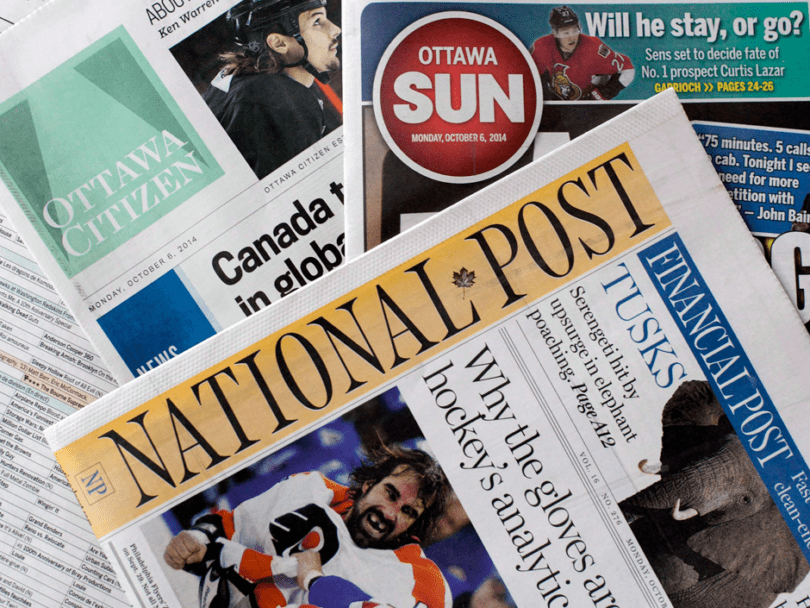Pack journalism is alive and flourishing in federal political coverage.
With Parliament’s return still two weeks away, recycled news stories remain quite predictable.
The initial Trudeau legacy reportage and reviews of possible successors quickly gave way to repetitious storylines.
Not even the implications of the machinations of the Rogers family and board unravelling, affecting one of Canada’s most important companies, could maintain its position on the top of the attention charts.
The never-ending saga of the anti-vaxxers and libertarians within the Conservative caucus continue to haunt Erin O’Toole’s waking hours. Even his attempted pivot to shadow cabinet announcements was translated into pro and anti-vaccination terms.
Caucus reactions to Prime Minister Trudeau’s delays in recalling his team for an election post-mortem competed for attention among reporters looking to uncover Liberal unrest following the election results.
Given the COP26 meetings, media coverage was filled with reviews of the suitability of Environment Minister Guilbeault , a radical activist turned minister, and how his appointment plays to an anti-Western Canadian narrative.
Hands-down the favourite target of the media barrage was the piling on about Mr. Trudeau’s ‘unworthy’ treatment of Cabinet veteran Marc Garneau and his replacement by an ‘unqualified’ foreign minister, Melanie Joly, highlighting her early performance flaws as a minister.
The instant media critics generally ignored Joly’s subsequent improved ministerial performance, work on the Francophonie file, strong election campaigning in Quebec and her position in Mr. Trudeau’s inner circle [something most foreign countries value]. Others conveniently overlooked her bilingualism and strong communications skills, both important assets in the role. Instead, there was an implicit storyline that gender symbolism, not qualifications, led to her appointment.
In this rush to judgement, there has been little willingness to let Joly be evaluated on her current performance.
Away from the confines of Parliament Hill, I doubt many Canadians, struggling with economic uncertainty high inflation costs, supply chain shortages and a resurgence of the next COVID wave, were paying much attention.
There remains a number of foreign developments that should be attracting Canadian media attention and that is far more relevant to the public as a whole. That reporting should offer context and develop ongoing understanding instead of defaulting to transactional coverage.
We can already see President Biden’s reflexive policy bending to the forces of US economic nationalism.
With a North American summit in the cards next week [prefaced by a first meeting of Canadian and US foreign ministers November 12 to engage around a renewed partnership], it is high time that commentators start paying attention to the early throes of serious political trouble for the Biden administration, and the implications for Canada of Republicans regaining control of both the House of Representatives and the Senate in 2022.
While Minister Joly has been criticized for reaching out to her American counterpart first, and for her failure to articulate her China views, the US and Canada share the world’s largest trading market. Canada is the United States’ largest customer and buys more goods from the United States than China, Japan, and the United Kingdom combined. Canada is also the top trading partner for most U.S. states.
If the Trump wing influence remains in ascendancy among Republicans and independent voters, what are the implications for Canada of the Buy America and Buy American provisions emerging at state and national level, and how will they play out in implementing Biden’s signature ‘Infrastructure’ plan?
What expectations will be the US government also hold for its Canadian ally in its global competition for hegemony with China? For example, will the US administration return to more restrictive tariffs to battle the Chinese by attacking third party intermediaries? What role will be expected in terms of US Asia Pacific partnerships?
The fight against climate change knows no boundaries; the receding ice shelf and the opening of the Northwest passage affects fundamental sovereignty issues. Our shared geography also requires cross-border coordination on fundamental issues like water quality or the routing of energy pipelines.
Canada’s future relationship with China, post Huawei and the detention of the two Michaels, is being recast by an Ottawa foreign affairs working group. But the debate needs greater involvement of Canadians as a whole.
Issues such as Chinese investment in Canadian infrastructure, resource industries, telecommunications, technology transfers and academic research institutes will soon be tested in the crucible of both economic advantage and security.
Will Canadian business successfully pivot and take advantage of the existing trade treaty openings to an EU market that we have barely explored?
In recent years, the media and opposition parties have devoted a staggering amount of attention to fighting so-called political corruption in Canada. If that is indeed an ongoing priority, the political chattering classes could start paying more attention to the great ‘sleaze’ debate now occurring in the mother of all Parliaments, Westminster.
The UK debate is particularly relevant to Canada as our conflict of interest codes of conduct for the vast majority [around 75%] of parliamentarians who are not in Cabinet or serving as parliamentary secretaries mirror British practice.
In essence, a UK MP Owen Paterson worked for private companies over the course of several years, and was found to have broken lobbying rules in his capacity as an MP. When suspended by Parliament’s independent standards watchdog, Boris Johnson’s Conservatives at first tried to block the suspension and then reform the watchdog, only to reverse course when public pressure became too great.
Having let the genie out of the bottle, there are broader questions being asked about the behaviour of the MPs elected to represent the public. In particular, it has been noted that some 90 Conservative MPs [about 1 in 4] supplement their parliamentary roles with substantial [allowed and reported] private sector work.
The work of former Cabinet Ministers advising private sector firms and governments while still serving in Parliament has now come under intense scrutiny.
One can anticipate changes in British ethics and conflict rules which are likely to trickle down to other parliamentary settings.
I look forward to seeing more of these issues relevant to federal political coverage addressed in the weeks and months ahead.






